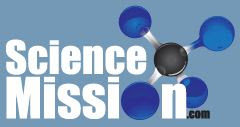The
researchers have improved our understanding of how the immune system is
regulated to prevent disease, identifying a previously unknown role of
‘natural killer’ (NK) immune cells.
The study identified a new group of immune cells, known as
tissue-resident memory natural killer (NKRM) cells. NKRM cells limited
immune responses in tissues and prevented autoimmunity, which is when
the immune system makes a mistake and attacks the body's own tissues or
organs.
While additional research is required, the discovery may ultimately be
used to treat autoimmune diseases like Sjogren’s Syndrome and possibly
chronic inflammatory conditions.
Originally, NK cells were thought to be short lived cells that circulate
in the blood with the sole function of identifying and quickly killing
virally infected or damaged cells.
The team’s previous research established that NK cells’ role is far more
complex, and the latest study demonstrates for the first time that a
subset of NK cells, NKRM, are critical in regulating immune responses in
tissues.
“This is key to preserving tissue function and preventing autoimmunity
from developing,” the senior author said. “While long-lived tissue
resident memory T cells (TRM) have been described, the primary known
function of these cells is to protect the host against reinfection.
“Our discovery of tissue-resident memory natural killer (NKRM) cells
establishes that the function of some memory cells that live in tissues
is to protect from excessive inflammation rather than protect against
recurring infection.”
“One of the main obstacles in cancer immunotherapy … is the development
of immune related adverse events, which include the development or
flare-up of autoimmune complications,” the author said.
“These events are due to ‘super’ or ‘uncontrolled’ activation of the
immune system as a result of the brakes being removed by the therapeutic
strategy.
“Furthermore, many therapies cause collateral damage to tissues where
tumors are localized. Thus, NKRM may be an adjunct or follow-up therapy
to restore immune balance and bring back tissue health.”
https://www.cell.com/immunity/fulltext/S1074-7613(23)00026-2

